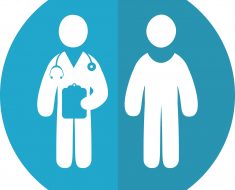
Q: How should we feed our baby when we’re running low on money?
A: Lost jobs and business during the COVID-19 outbreak have left many families struggling to pay for groceries, including infant formula.
Food pantries and public support programs such as WIC and SNAP are available, but they may not cover everything a family needs to stay healthy. Also, families who find themselves suddenly in need may not qualify for some of these public support programs.
The AAP strongly believes that good nutrition is essential for a healthy future for infants and small children. Putting their needs first is critical, and there are ways to make this more affordable.
If your child is younger than 12 months of age, ask your pediatrician’s office if it can urgently get you a small supply from the local formula representatives or a local charity. Some formula companies have patient assistance programs that your pediatrician can help you find. Your local WIC office may also be able to help.
If possible, buy formula online or in the largest sizes available at retail stores, and watch for sales. Remember to only buy formula from well-recognized distributors and pharmacies. Avoid formula sold by individuals or on auction sites.
For most babies, it is OK to switch between different milk-based formulas, including store brands, unless your baby is on a specific, highly hydrolyzed one, such as Alimentum or Nutramigen. If you are unsure, talk with your pediatrician.
Never water down formula! Always follow label instructions or those given to you by your pediatrician. Watering down formula is dangerous and can cause nutritional imbalances in your baby and lead to serious health problems.
You may be tempted to buy cheaper dairy alternatives, but whole cow’s milk and dairy alternatives are not recommended for infants under 12 months of age. It is best to stick to breast milk and/or infant formula throughout your baby’s first year, except in a brief emergency. Food banks, local WIC offices and other community resources are usually able to help in a food emergency. Keep in mind that eligibility for public support programs like WIC and SNAP may change, so stay in contact with these agencies to make sure you can participate.
Toddler formulas are not necessary for infants over 12 months. Cow’s milk or fortified soy milk products are less expensive than formula, meet a toddler’s need for milk products, and provide adequate minerals and protein.
You also may want to make your own food for your baby to save money. The AAP strongly advises against homemade formula, however. Although recipes for homemade formulas circulating on the internet may seem healthy and less expensive, they may not be safe and do not meet your baby’s nutritional needs.
You can make your own baby food when you start your baby on solids, at about 6 months of age. There is no need to rely upon premade baby food that often is more expensive. If you make your own baby food, be sure to include enough protein and iron, two key nutrients for your child’s growth. Most beans are high in protein and are cheaper than many other protein sources. Dark green leafy vegetables are a great source of iron.
It’s good to include a variety of fruits and vegetables in your baby’s diet, and you will find that a lot of produce is reasonably priced, if you shop around. Buy frozen vegetables, look for specials, and avoid precut veggies, which are more expensive than whole ones. Buy produce that is in season and consider a subscription to a box of imperfect fruits and vegetables, which often comes at a discounted price.
You also can freeze food that you make in a blender or food processor for your baby to help it last longer. Add some chicken or vegetable broth to stretch out a meal.
Be sure not to give honey to an infant under 1 and avoid foods that are choking hazards, such as nuts and raw carrots.
Source: Read Full Article





